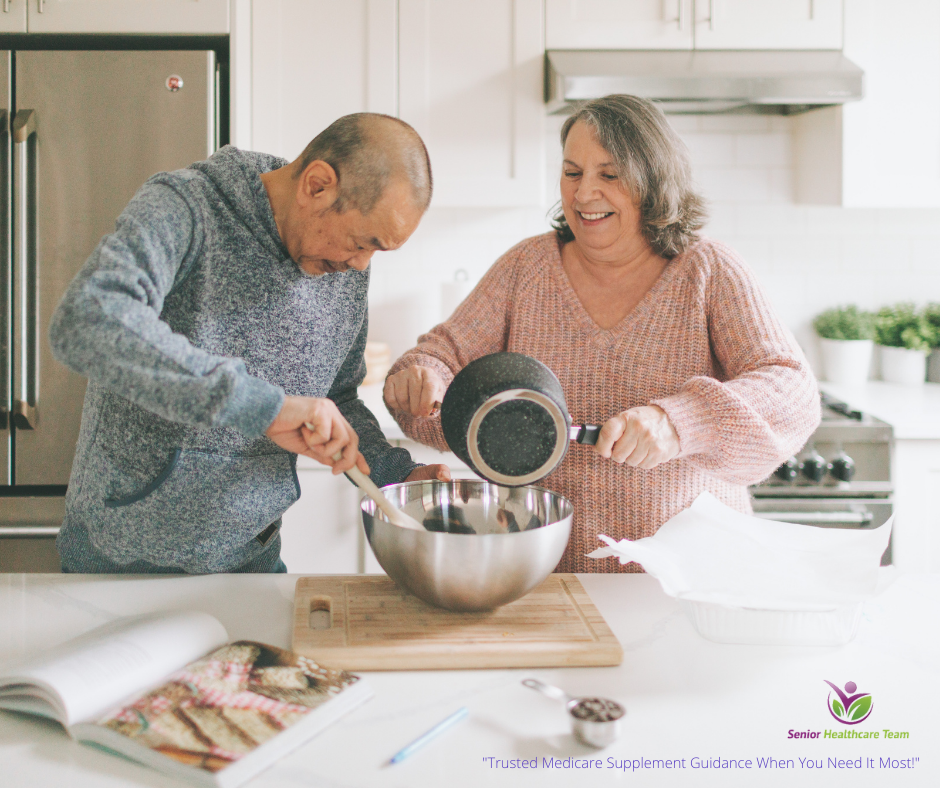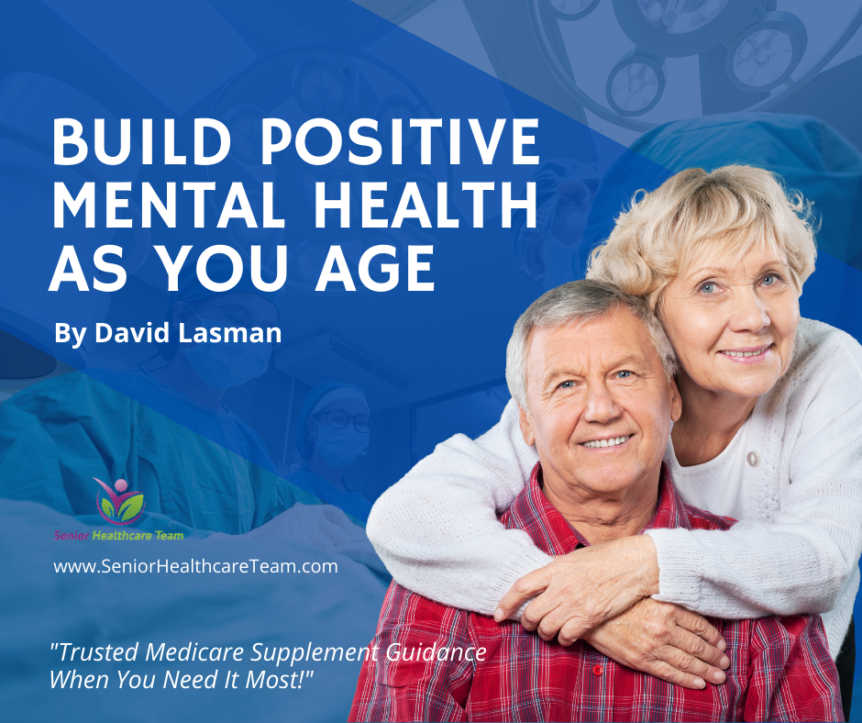Mental Health has become far more recognized and talked about in recent years. This positive change has led us to become more comfortable with discussing issues related to mental health and seeking out treatments and therapies for ourselves and our loved ones.
As we age, our mental health needs also change. Aging brings with it a new phase of life with its own unique challenges and trials. That can often lead us to feel burdened, stressed and at times helpless. As many as 1 in 5 elderly people have mental health concerns that are serious enough to require intervention. Many elderly need assistance and support in coping. However, there is always help available. Seeking the right help at the right time can make a world of a difference in ensuring future comfort.
Common stressors for elderly
Elderly people have their own unique problems that can turn into stressors. Most elderly are able to adjust to these changes and engage their personal and environmental resources in order to maintain their well-being. Their success in dealing with the challenges of aging will be determined by their coping skills, social support, and their ability to maintain a sense of control.
Physical Health Problems: As we age, there is wear and tear of our body. So, we are more likely to experience physical health problems such as chronic pain, heart disease, stroke, Alzheimer’s disease, etc, that will be a source of stress.
Losses: Another hard fact of aging is that as we go through life we face more losses. The experience of losing friends and family members is difficult for everyone. With age, we have more and more such experiences from losing our parents to siblings or friends. Other losses include a loss of independence, mobility, roles and status, and self-worth.
Social isolation: Due to a change in lifestyle, health, energy levels, many elderly tend to isolate themselves. Often, they stop making efforts to go out or have people over. Outings become infrequent, occasions few and far about. This leads to social isolation that can have a negative impact on mental health.
Change in living arrangements: Many elderly prefer to live independently and have to move in with their children due to deterioration of health. This leads to a change in roles and status in the family. Many elderly feel robbed of their environment, routine and independence.
Financial stressors: Unpredicted circumstances such as illnesses and hospitalizations can put financial stress on elderly. For elderly without a pension, it can be even more difficult. Changing circumstances ad relationships with children can also cause difficulty in adjusting.
Lack of activity: Staying mentally and physically active is essential for wellbeing. However, often elderly find themselves without much to do post retirement. Not challenging your brain can lead to mental deterioration.
Improving mental wellbeing
There is a lot that you can do to maintain your mental health and wellbeing. It is essential to prioritize your mental health along with your physical health. Our physical health affects our mental wellbeing and vice versa.
Here are some tips for maintaining a good mental health:
Eat Well: Eating right can help maintain positive mental health. Healthy wholegrains, fruits and vegetables, pulses are the way to go. Sugary foods give you a sugar rush and subsequently you feel tired and low when the sugar rush subsides. With healthier foods, the food is absorbed slowly and thus there are no mood swings.
Get Enough Sleep: Good sleep is very important, especially for older adults as their sleep needs change. As with age, we become lighter sleepers, we need longer duration of sleep to get adequate rest. Sleep improves concentration, memory formation, and restores any cell damage; overall refreshing the body’s immune system.
Exercising regularly: Exercise is known to improve mood and emotional well-being. It thereby prevents mental health issues. The double bonus is that it improved your overall physical health as well.
Maintaining Relationships: Good relationships are the backbone of good mental health. It is often considered the most important contributor to happiness and wellbeing. Be it family, friends, colleagues or neighbors, our relationships provide us a support system that not only helps us cope with stressors but also provides a support in time of need for intervention. Sharing our feelings with others is a proven method of de-stressing.
Take out time for enjoyable and relaxing activities: An overlooked part in our culture is the importance of hobbies. Fun hobbies such as a sport, an art class, gardening, etc. can become a source of contentment and satisfaction. With time on our hands as we age, identifying such activities and making an effort to engage in them can turn our day of loneliness into a day of enjoyment.
Spirituality or religion: Many elderly people find themselves turning more and more to religion as they age. This can also give opportunities for socialization and interaction with others in the community. Being involved in spiritual or religious practices has been linked with improved wellbeing for many people.
Turn to Technology to Stay in Touch: Sending emails, messages, photos to friends and family can be a regular part of an elderly’s routine. Staying in touch on social media sites such as Facebook can also prevent social isolation for elderly, especially when their children live far, or in a different country.
Create flow: Flow is a unique state of being, in which the person is so engrossed in activity of interest that they feel a sense of contentment and can spend more and more time in the activity. When the level of challenge in the activity feel right (not too easy & not too difficult), it leads to a better sense of contentment. A person can reach the state of flow during any activity for example badminton, gardening, painting, and chess.
Develop gratitude: Gratitude is a well-established method of boosting positivity and increasing our levels of happiness. This can be done by keeping track of all the things that we feels blessed to have. It starts at acknowledging all the little things we feel lucky to have. You can a keep a gratitude journal, or a gratitude jar (in which you put chits for what makes you happy everyday) to remind yourself to feel gratitude on a regular basis.
Give to others: Performing small acts of kindness can give us a feeling of happiness and self-worth. It helps cancel out negative feelings about ourselves and leads to a feeling of contentment. You can engage yourself in the community, donate to a cause you believe in or volunteer at an NGO. It will not only be a service to the society, but will also be a rewarding engagement.
Go Back to School: Keeping our brain challenged in essential for mental health. As we age, our brain ages as well. Retirement also is time when we have the time to pick up topics of interest to study that we may not have had time for earlier. It could be a computer class, a new language, pottery, etc. that will keep you busy and learning.

Get a Pet: Studies show that pets can make elderly more socially engaged. They are also likely to improve satisfaction and well-being.
Play Games: Games, puzzles, cards, etc can be a fun activity for seniors. Joining a club or a group, or playing in your own circle can help improve socialization. Playing with family or even alone can lead to fruitful engagement during the day.
Take Control of Your health: Our mental and physical health is related and maintaining physical health is important in our attempt to maintain metal health. Making healthier life choices, taking out time for exercise and regular doctor’s visits can help achieve this goal. It is never too late to take control of your health.
The above tips are likely to help most people cope and lead a happy and fulfilling life. However, it is important to note that further help is often needed. If you feel that your ability to cope is diminishing and hopelessness is creeping in, it’s a great idea to seek out professional help. You can ask your doctor for a referral to a psychologist or a psychiatrist who will be able to help you better.
Here are more ways to keep your mind fresh: Why Hobbies Are Vital in Retirement
By David Lasman – “Ask Medicare Dave” | President – Senior Healthcare Team
wwww.SeniorHealthcareTeam.com | 866-333-7340
Selecting the right healthcare plan through Medicare can be overwhelming and downright stressful. Senior Healthcare Team is a nationwide resource that provides guidance and support about Medicare to seniors at no cost to them and helps them to choose the most suitable insurance plan tailored to their specific needs and budget. Our goal is to educate and empower our clients to make the best decisions regarding their healthcare and clear up the confusion of Medicare. At Senior Healthcare Team, we aren’t partial to any one insurance company. Our loyalty is to our clients and our mission is to provide them with the best healthcare options at the very lowest cost.

